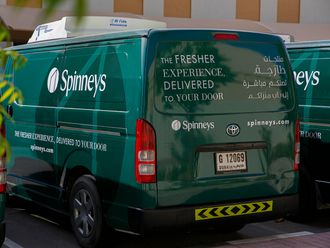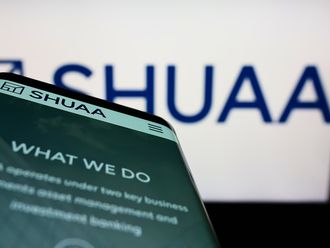Abu Dhabi: With electricity demand in the Middle East and North African (MENA) countries set to grow at an average annual rate of 7 per cent per year, it’s estimated that as much as $283 billion (Dh1.039 trillion) will be invested within the region’s power sector between 2014 and 2018, delegates at an energy conference in the capital learnt yesterday.
The proposed regional investment in electricity generation is as per the finding of Kuwait Financial Centre. as well, the Gulf Cooperation Council (GCC) states are projected to invest more than $300 billion in some 20 energy projects by 2020, which will generate eight gigawatts of additional power, according to Doha-based Gulf Organisation for Industrial Consulting (GOIC).
Abdulla Saif Al Nuaimi, Director General of Abu Dhabi Water and Electricity Authority (ADWEA) inaugurated the sixth edition of Power & Water Middle East exhibition that would run through September 25 at the Abu Dhabi National Exhibition Centre. Organisers claim the exhibition has a presence of more than 100 exhibitors.
“Adwea has been producing clean and efficient water for Abu Dhabi for 15 years. In the last five years, the demand growth has increased on average by 9.4 per cent per annum in Abu Dhabi,” said Al Nuaimi in his speech which was read out by Saeed Nasouri, technical advisor at ADWEA.
“As a result of new development and increase in population, an increase of 11.9 per cent per annum is forecasted for electricity and 7.2 per annum per annum for water, through 2015.”
“More gas production (including unconventionals) is a necessity for regional and global markets. MENA gas export growth is virtually all driven by Qatar and Algeria. Neither will grow much after 2015 – Algerian exports are already declining, Oman, Egypt exports are also declining. (However), new importers are appearing such as Kuwait, Dubai, Bahrain and Fujairah,” said Robin Mills, head of Consulting at Dubai-based Manaar Energy Consulting.
Of the UAE’s current installed electricity generation capacity, almost 85 per cent of the power that’s generated is gas-based, while the other plants are oil-fired. Nearly all of Abu Dhabi and Dubai’s electricity comes from gas-based stations.
The UAE’s $20 billion (Dh73.5 billion) civil nuclear programme is on schedule with the country’s first nuclear reactor slated to start operations in 2017.
The UAE is currently working on plans to have four nuclear power reactors operational in Barakah by 2020, to generate 5.6 GWe of electricity. The first plant has been under construction since July 2012.










